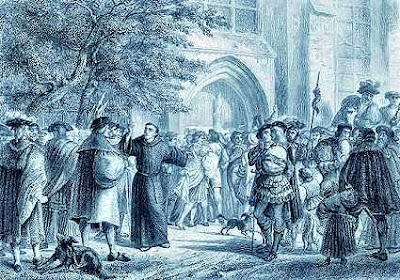Posts
Showing posts from October, 2015
Archive Recording of Dr. Ian Paisley: Richard Cameron (Covenanter)
- Get link
- X
- Other Apps
Of the State of Men after Death, and of the Resurrection of the Dead
- Get link
- X
- Other Apps
Mrs. Janet (Mure) Carstairs: 'A Dearest and Most Kind Friend'
- Get link
- X
- Other Apps
Katherine Parr: Reformation Queen of England and Ireland
- Get link
- X
- Other Apps
John Knox: Reformer of Scotland and Father of Presbyterianism
- Get link
- X
- Other Apps
The Second Part - Of Man's Deliverance (Continued)
- Get link
- X
- Other Apps
The Reformation & the Rediscovery of Christian Assurance
- Get link
- X
- Other Apps
What is thy only comfort in life and death?: The Life and Significance of Zacharias Ursinus and the Heidelberg Catechism
- Get link
- X
- Other Apps
The Second Part - Of Man's Deliverance
- Get link
- X
- Other Apps
A Righteousness Apart from the Law That Is Not against the Law: The Story and Message of The Marrow of Modern Divinity
- Get link
- X
- Other Apps
In Loving Memory of Pierre Viret: The Forgotten Reformer, Counselor, Angel, and the “Smiling Face” to the Reformation
- Get link
- X
- Other Apps
Of Religious Worship, and the Sabbath Day
- Get link
- X
- Other Apps










